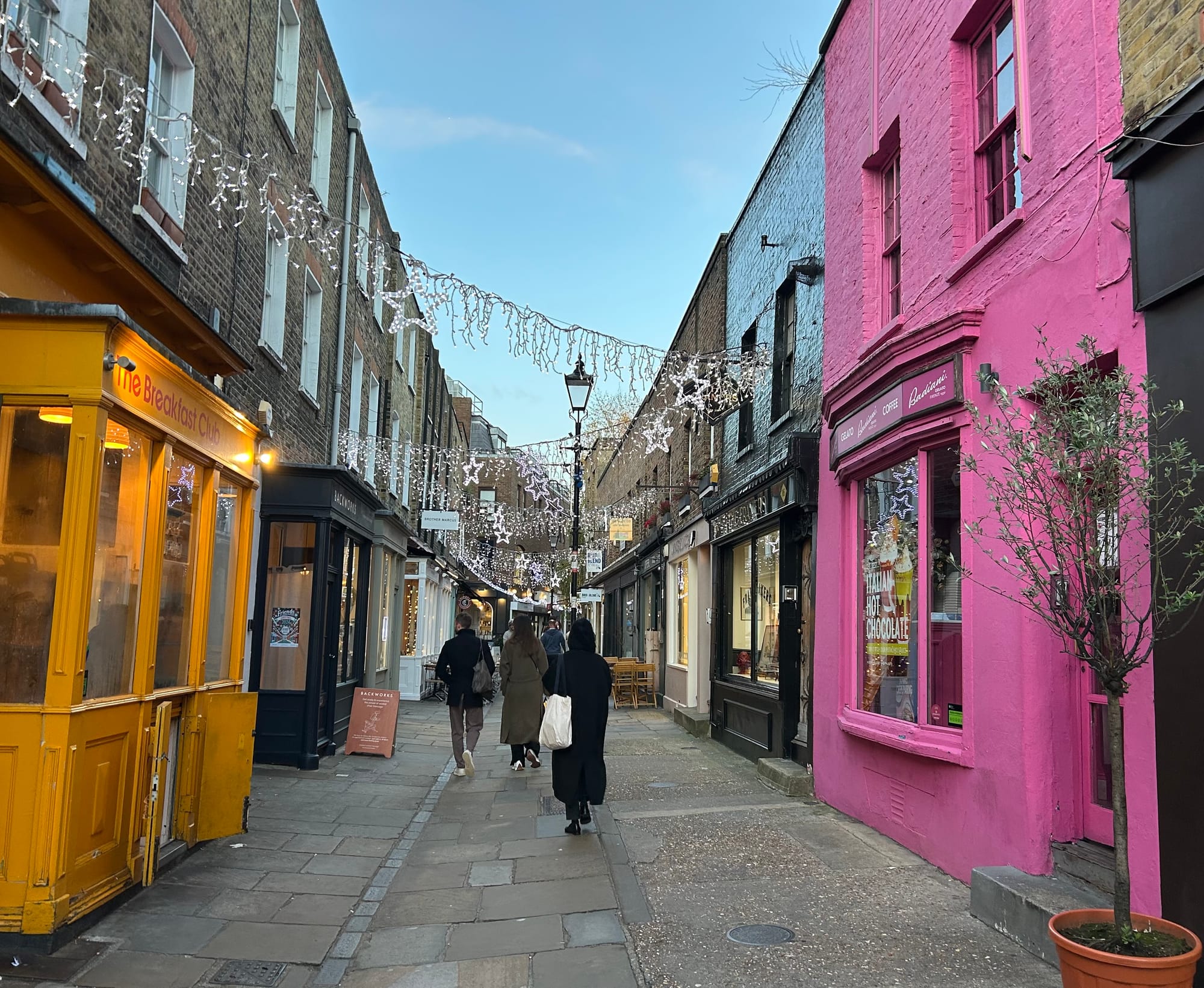Rachael explains how walking and cycling to local shops boost local economies as well as improving your health.
Islington is renowned for its vibrant restaurant culture and shopping areas, with a variety of local businesses adding to its buzzing and diverse atmosphere. In today’s fast-paced world, convenience often means jumping into a car to shop and socialise. However, car ownership is declining in Islington as cycling and walking become more popular. Our city streets were originally built for walking, with many routes leading to shopping areas, entertainment, restaurants and so much more.
Walking and cycling are the easiest ways to travel to one of many mini high streets dotted around the borough. Yet, it can be tempting to stay home and order deliveries. While essential for some, unregulated and unlimited delivery traffic exacerbates the Climate Emergency and hinders Islington Council's Net Zero targets. This merely outsources traffic issues—road danger, noise, and air pollution—to delivery drivers like those from Deliveroo or Ocado.
Instead of getting our food delivered by moped from Dark Kitchens owned by Deliveroo and the like, what if we spent time walking and cycling to our local shops and supporting local businesses? Studies indicate this small change in our behaviour can significantly benefit our health, environment, and local economy. Pedestrians tend to spend more at local shops compared to drivers or online shoppers, making multiple stops for coffee, bread, or gifts. The more people walk, the more they notice nearby businesses.
The "Pedestrian Pound" describes the increased spending power of those who walk. A report by Living Streets found that pedestrian shoppers in retail areas spent 40% more per month than drivers. Walking-friendly streets are among the most cost-effective ways to tackle societal challenges and benefit high streets, communities, health, and the environment.
Pedestrians linger for longer in attractive high streets, encouraging further investment in the area, such as pavement improvements, seating, public toilets, and greening. This boosts the local economy, providing jobs and keeping money circulating locally, unlike multinational companies or delivery services indirectly subsidised by taxpayers.
Walking has many benefits. It is good for your health, it's a cheap and reliable way to travel, it helps the environment and is an opportunity to get to know the area you live in better and meet new people. Overall it increases a sense of belonging and improves wellbeing. Walking for 30 minutes on most days reduces your mortality risk by at least 10% (World Health Organisation, 2022). You can learn more on the Council's website.
We all remember the importance of daily walks during Covid restrictions to reduce isolation and strengthen community bonds. Islington residents live close to high streets ideal for meeting and socialising. Traveling on foot or by bike reduces air pollution and greenhouse gases, benefiting health and the environment. Cities prioritising walking and cycling see improved public health, with lower rates of obesity, heart disease, and mental health disorders.
Choosing to shop locally means investing in your community's health and prosperity—it's convenient and an economically sound strategy.
Article first published Islington Gazette as part of Rachael's regular column.




